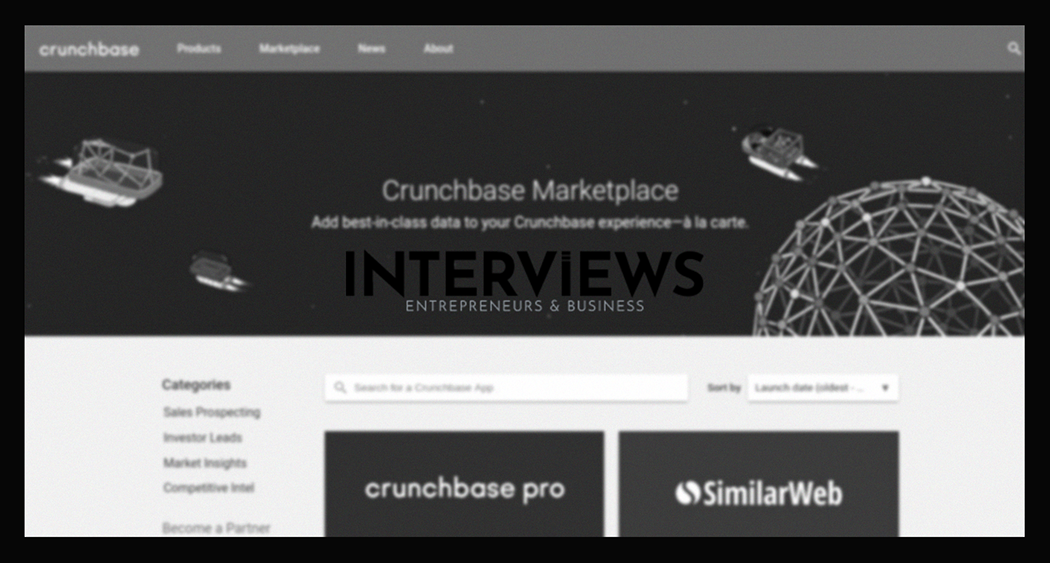Is Crunchbase the Secret Weapon Your Business Needs? Let’s Unpack It.
In business, data is gold. Finding the right sources can be tricky. Enter Crunchbase, a platform that positions itself as a guide in the data landscape. Does it really provide valuable insights, or is it just another illusion? We will explore if Crunchbase is substantial for startups, investors, and market players.
Data Accuracy: Hype vs. Reality – Can You Trust the Numbers?
Crunchbase boasts of its prediction accuracy. They claim up to 95% precision and 99% recall in fundraising forecasts. If true, that is impressive. They assert they identify most funding-ready companies and avoid false positives. For a one-year view, they concede accuracy dips to the “high 70s percent.”
No platform is flawless. Crunchbase data could wobble. Even trusted sources face occasional data hiccups.
How does Crunchbase maintain accuracy? They gather data from multiple sources: a large community, public records, and data partners, alongside AI and machine learning. Consider it a digital detective agency, corroborating info to present the facts accurately.
- Human Data Team: Crunchbase employs real people – data analysts – who verify information and develop algorithms for clarity. Think of them as online librarians for business data.
- Community Contributions: Crunchbase uses crowdsourcing. Executives and investors update company profiles. It’s like Wikipedia for business intelligence – constantly evolving and improving.
In summary, Crunchbase aims for high-quality data accuracy, blending technology and human effort to uncover the truth.
Digging into the Dirt: Crunchbase’s Data Sources Revealed
Where does Crunchbase gather its valuable information? It feels magical at times. They’ve built an extensive network, pulling from varied sources to create a detailed picture.
- Multiple Streams: Venture capitalists, corporate investors, and users contribute to Crunchbase. This ensures fresh and diverse content.
- User Power: Users can contribute data directly. Information from visitors helps keep the pipeline moving. Share your insights if you feel generous.
- Web Crawling Ninjas: Automated web crawlers constantly scan the internet for publicly available information. They assure continuous growth in the database.
- Data Partner Alliances: Crunchbase collaborates with various partners to enhance data depth and accuracy. Over 4,000 global firms submit updates monthly – that’s significant.
- AI Brains: Crunchbase employs AI for data verification and pattern recognition. It acts as a watchdog for anomalies in data figures.
Crunchbase’s sources are a mix of human effort and automated processes. They create a reliable dataset, similar to a well-stocked pantry supplying diverse ingredients.
Crunchbase Cage Match: Versus Pitchbook and LeadIQ – Who Wins?
Certainly, Crunchbase is not the only contender in this landscape. Let’s compare it with Pitchbook and LeadIQ.
- Pitchbook: The Early-Stage Investor Data King? Many users prefer Pitchbook for early-stage investment data, claiming it surpasses Crunchbase in accuracy. If you’re seeking seed investment, Pitchbook could be your gateway. However, its cost may be higher, and usability may lag.
- LeadIQ: The Lead Generation Machine. For uncovering leads, LeadIQ shines. It streamlines finding contacts and supercharges prospecting. Crunchbase may assist in lead generation, but LeadIQ is laser-focused on sales enhancement.
So, who takes the crown? It hinges on your goals. For investor insights, consider Pitchbook. For lead generation, choose LeadIQ. For general business insights while being budget-conscious, Crunchbase excels.
Unlocking the Power: How to Actually Use Crunchbase (and Why You Should Care)
Crunchbase serves as a practical toolkit; however, like any tool, it’s ineffective without proper handling. Here’s who benefits and how:
- Startups: Your Survival Guide. Crunchbase acts like a savvy guide for startups, offering crucial information on venture capital and private equity opportunities. It helps navigate the market effectively.
- Investors (Angels & VCs): Your Startup Radar. Angel investors seeking emerging companies can use Crunchbase to pinpoint promising opportunities. Venture capitalists can track potential investments more confidently.
- Sales & Marketing Ninjas: Your Competitive Edge. For market research and client engagement, Crunchbase becomes a powerful asset. Elevate strategies and deepen market understanding with its insights.
- Recruiters: Investor Candidate Scouting. Recruiters can utilize Crunchbase for investor research. It functions similarly to LinkedIn but focuses specifically on investment candidates.
If you need meaningful information for your business strategy, Crunchbase remains an essential tool.
Hold Your Horses: Crunchbase Caveats and Potential Pitfalls
Caution! While Crunchbase appears beneficial, it’s vital to consider its limitations. No platform achieves perfection, and Crunchbase has issues.
- Data… Sometimes Dusty? Users report outdated or missing data. Like an old website still functioning. This highlights the importance of regular updates for accuracy in critical decisions.
- Not a Magic Deal Genie. Remember, Crunchbase reports on past deals rather than facilitating new connections. It serves as informational rather than an instant link to funding opportunities.
- Visibility… Not Guaranteed. Crunchbase profiles enhance SEO but do not secure meetings with investors. Use it as a visibility tool rather than a guarantee for successful pitches.
In essence, Crunchbase is powerful but not infallible. Employ it wisely with healthy skepticism and thorough verification while navigating your path to success.
The People Have Spoken: Crunchbase User Reviews and Employee Vibes
User feedback? Crunchbase boasts a user rating of 3.9 out of 5 stars from over 82 reviews. It indicates decent performance — think of a solid B+, not perfect but acceptable.
Notably, 68% of employees would recommend working at Crunchbase to a friend.
About 65% of employees show a positive view toward their business. Happy employees usually create good products and lead companies in the right direction. It’s like checking reviews for a restaurant. Good feedback from customers and staff is generally a good sign.
Money Talk: Crunchbase Cost and Access – Free vs. Fancy
How much does Crunchbase cost? Options fit every budget. There is “free” and “pro-level.”
- Crunchbase Free: The Starter Pack. Want to explore without spending? Crunchbase Free is here for you. It provides quick company lookups with basic data. It’s good for browsing and getting the feel of the platform, like free samples.
- Crunchbase Pro: Unleashing the Beast (for a Price). Ready to upgrade? Crunchbase Pro is a subscription that unlocks advanced search features and market intelligence. They also offer data licensing. Think of it as moving from a bicycle to a Ferrari.
- Subscription Deets: The $99 Question. Crunchbase Pro costs $99 monthly. No long-term contracts exist; you can cancel when you want. It’s similar to Netflix, but for business data. Is it worth $99 monthly? It depends on your desire for data.
In summary, Crunchbase has various access levels, from free to premium. Begin with the free version to see if it meets your needs. Then, decide if upgrading to Pro is worthwhile. It’s like taking a car for a test drive before buying.





